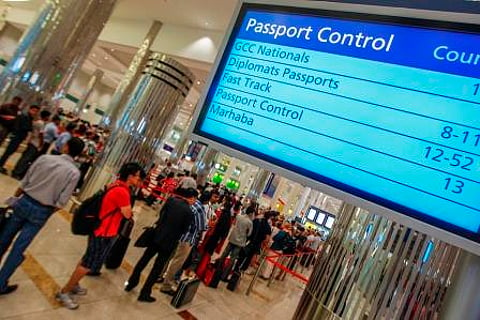Travel cards on a wave of growth
As outbound travel spends from the GCC rise, the use of plastic for transactions has been gaining momentum

In the GCC, debit- and credit-card usage has been growing, and with it the use of specialised travel cards for leisure as well as business. The trend has continued despite a slight weakening in economic sentiment. However, that has not reined in the increasing expenditure on outbound travel from the UAE.
According to the World Travel & Tourism Council’s (WTTC) 2014 report on the UAE, outbound travel spending was worth a whopping Dh75.4 billion in that year, up from Dh71.9 billion in 2013 and Dh66.5 billion in 2012. In a projection for 2024, the WTTC expects this figure to rise to Dh93.5 billion.
As for the entire Middle East, the United Nations World Tourism Organisation (UNWTO) forecasts that there will be more than 35 million outbound tourists from the region in 2020. This represents an annual growth rate of 6 per cent, higher than the world average of 4 per cent, closing the travel gap with Western countries. The six GCC nations together constitute about 60 per cent of all outbound travel and nearly 75 per cent of total international tourism expenditure from the Middle East, says Kumud Sengupta, Director of Market Vision, a Dubai-based research and consultancy firm. Outbound GCC travellers are forecast to spend Dh345 billion by 2020, up from Dh184 billion in 2010, the UNWTO reports.
In the race for customers, credit-card companies in the UAE have tied up with various travel brands in their quest to entice consumers with benefits such as sign-up bonuses, loyalty points, special discounts and more. This, in turn, is a great opportunity for cardholders to earn free points that can be redeemed for air fares, hotels or even cashback.
Take Visa, for example. The company works with financial institutions globally to provide co-branded travel cards that offer cardholders a range of benefits, including air miles programmes, lounge access and concierge services, upgrades and discounts on entertainment, leisure and hospitality offerings.
In the UAE, Visa offers travel-related products such as the Emirates NBD Skywards Infinite card, ADCB Etihad Guest Above Infinite card, the Emirates Islamic Skywards credit cards, Dubai First Skyy Miles Visa Platinum card, ADIB Etihad Guest Visa Platinum card and Mashreq Air Arabia card.
“These are all popular co-branded travel card choices in the UAE,” says Fabio de Grazia, Head of Core Products, Middle East and North Africa at Visa. Travel cards are headed for strong growth in the region, “as a larger section of the population is inclined to travel, and also [do so] more frequently on an annual basis”.
Use of plastic abroad
According to the Visa Global Travel Intentions Study 2015, which surveyed 25 travel markets, card usage by travellers has increased markedly over the past few years. The report found strong use of payment cards throughout holiday periods — both to plan and pay before one leaves and to spend during a holiday, perfectly fitting for the end of Ramadan and Eid Al Fitr break. “Around 61 per cent of UAE travellers in the study indicated a preference to use cards across all merchants when they are at their destination,” explains De Grazia.
“In fact, while globally 29 per cent of travellers said they would spend more if they were able to use cards more frequently and at more merchants, 33 per cent of UAE travellers said they would use their cards more frequently.”
Richer rewards
MasterCard, Visa’s primary competitor, also has a plethora of products in the travel card segment on offer. One particularly popular solution is the dnata World MasterCard credit card, launched together with Emirates NBD. “It is the UAE’s only card to offer 15 per cent rewards on all purchases at dnata travel and zero per cent foreign currency transaction fee,” says Eyad Al Kourdi, Country Manager — UAE, MasterCard.
“Cardholders are not restricted to choosing one loyalty programme over another. [They can] redeem reward points on more than 130 airlines, stays at thousands of luxury hotels and other travel packages such as cruises.”
Particularly, high-end prepaid solutions are witnessing increased popularity in the segment, Al Kourdi says. This includes prepaid multi-currency cards that give cardholders the option of making payments in the currency of their choice.
“Demand for travel-focused e-payment solutions has witnessed rapid growth in the UAE as well as across the GCC, changing the traditional behaviour of using cash or travellers’ cheques,” Al Kourdi explains, adding that credit cards are the most prevalent travel plastic, followed by debit and prepaid cards. There is also rising demand for exclusive card solutions, for which the World Elite MasterCard has been created, with benefits such as free access to airport lounges, a personal travel adviser and concierge service.
“Demand for travel cards is expected to grow in the region,” says Al Kourdi. “The increasing popularity of local cities as international travel destinations, steady economic growth, and evolving travel habits of residents in the region are some of the key drivers for this growth.”


